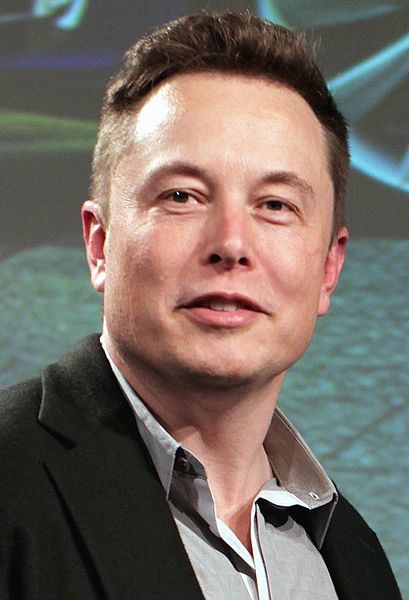It’s okay, he makes it clear from the start that he’s talking about Ashlee Vance’s earlier work, not the one that just hit the shelves this year:
This isn’t the new Musk biography everyone’s talking about. This is the 2015 Musk biography by Ashlee Vance. I started reading it in July, before I knew there was a new one. It’s fine: Musk never changes. He’s always been exactly the same person he is now.1
I read the book to try to figure out who that was. Musk is a paradox. He spearheaded the creation of the world’s most advanced rockets, which suggests that he is smart. He’s the richest man on Earth, which suggests that he makes good business decisions. But we constantly see this smart, good-business-decision-making person make seemingly stupid business decisions. He picks unnecessary fights with regulators. Files junk lawsuits he can’t possibly win. Abuses indispensable employees. Renames one of the most recognizable brands ever.
Musk creates cognitive dissonance: how can someone be so smart and so dumb at the same time? To reduce the dissonance, people have spawned a whole industry of Musk-bashing, trying to explain away each of his accomplishments: Peter Thiel gets all the credit for PayPal, Martin Eberhard gets all the credit for Tesla, NASA cash keeps SpaceX afloat, something something blood emeralds. Others try to come up with reasons he’s wholly smart – a 4D chessmaster whose apparent drunken stumbles lead inexorably to victory.
Elon Musk: Tesla, SpaceX, And The Quest For A Fantastic Future delights in its refusal to resolve the dissonance. Musk has always been exactly the same person he is now, and exactly what he looks like. He is without deception, without subtlety, without unexpected depths.
The main answer to the paradox of “how does he succeed while making so many bad decisions?” is that he’s the most focused person in the world. When he decides to do something, he comes up with an absurdly optimistic timeline for how quickly it can happen if everything goes as well as the laws of physics allow. He – I think the book provides ample evidence for this – genuinely believes this timeline,2 or at least half-believingly wills for it to be true. Then, when things go less quickly than that, it’s like red-hot knives stabbing his brain. He gets obsessed, screams at everyone involved, puts in twenty hour days for months on end trying to try to get the project “back on track”. He comes up with absurd shortcuts nobody else would ever consider, trying to win back a few days or weeks. If a specific person stands in his way, he fires that person (if they are an employee), unleashes nonstop verbal abuse on them3 (if they will listen) or sues them (if they’re anyone else). The end result never quite reaches the original goal, but still happens faster than anyone except Elon thought possible. A Tesla employee described his style as demanding a car go from LA to NYC on a single charge, which is impossible, but he puts in such a strong effort that the car makes it to New Mexico.
This is the Musk Strategy For Business Success; the rest is just commentary.
1. Vance starts with the story of the biography itself. When Musk learned he was being profiled, he called Vance, threatened that he could “make [his] life very difficult”, and demanded the right to include footnotes wherever he wanted telling his side of the story. When Vance said that wasn’t how things worked, Elon invited him to dinner to talk about it. Elon arrived late, and spent the first few courses talking about the risk of artificial superintelligence. When Vance tried to redirect the conversation to the biography, Elon abruptly agreed, gave him unprecedented access to everyone, and won him over so thoroughly that the book ends with a prediction that Musk will succeed at everything and become the richest man in the world (a bold claim back in 2015).
I like this story but find myself dwelling on Musk’s request — why shouldn’t he be allowed to read his own biography before publication and include footnotes giving his side of the story where he disagrees? That sounds like it should be standard practice! If I ever write a post about any of you and you disagree with it, feel free to ask me to add a footnote giving your side of the story (or realistically I’ll put it in an Open Thread).
2. The book gives several examples of times Musk almost went bankrupt by underestimating how long a project would take, then got saved by an amazing stroke of luck at the last second. When Vance asked him about his original plan to get the Falcon 1 done in a year, he said:
“Reminded about the initial 2003 target date to fly the Falcon 1, Musk acted shocked. ‘Are you serious?’ he said. ‘We said that? Okay, that’s ridiculous. I think I just didn’t know what the hell I was talking about. The only thing I had prior experience in was software, and, yeah, you can write a bunch of software and launch a website in a year. No problem. This isn’t like software. It doesn’t work that way with rockets.”
But also, the employees who Vance interviewed admit that whenever Musk asks how long something will take, they give him a super-optimistic timeline, because otherwise he will yell at them.
3. I wondered whether Elon was self-aware. The answer seems to be yes. Here’s an email he wrote a friend:
“I am by nature obsessive compulsive. In terms of being an asshole or screwing up, I’m personally as guilty of that as anyone, and am somewhat thick-skinned in this regard due to large amounts of scar tissue. What matters to me is winning, and not in a small way. God knows why … it’s probably [rooted] in some very disturbing psychoanalytical black hole or neural short circuit.”




